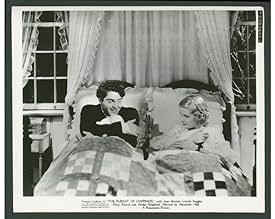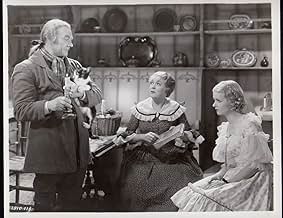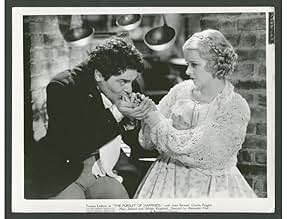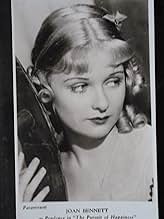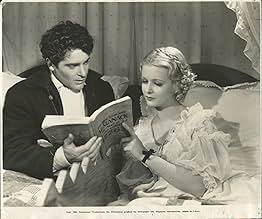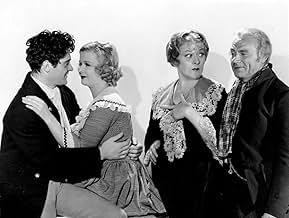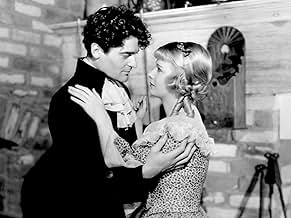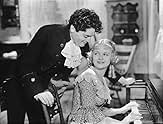Füge eine Handlung in deiner Sprache hinzuLederer is a Hessian soldier who defects to the Americans during the Revolutionary War.He falls in love with a Yankee girl, but a thuggish local militiaman jealously makes things hard for hi... Alles lesenLederer is a Hessian soldier who defects to the Americans during the Revolutionary War.He falls in love with a Yankee girl, but a thuggish local militiaman jealously makes things hard for him while he's a prisoner of war.Lederer is a Hessian soldier who defects to the Americans during the Revolutionary War.He falls in love with a Yankee girl, but a thuggish local militiaman jealously makes things hard for him while he's a prisoner of war.
Ricca Allen
- Little Boy's Mother
- (Nicht genannt)
Georgie Billings
- Little Boy
- (Nicht genannt)
Tommy Bupp
- Little Boy
- (Nicht genannt)
Shirley Coates
- Little Girl
- (Nicht genannt)
Handlung
WUSSTEST DU SCHON:
- WissenswertesA nitrate print of this film survives in the UCLA Film and Television Archives.
- VerbindungenReferenced in Wind at My Back: A Formal Affair (2000)
Ausgewählte Rezension
How often do you see a comedy set in the revolutionary war? How often do you see an unmarried couple in bed together during the production code era? For that matter how often do you see a married couple in bed together during the production code era? Well, at least in this film you do, although this was released early in the production code era - just two months after the code went into effect.
Francis Lederer plays a Hessian musician and professor of languages who gets caught up in the conscription by the Duke of Hess who is being paid by King George to send soldiers to fight in the American Revolutionary War. Max (Lederer) is a lover not a fighter, so he deliberately misses whenever he is told to shoot and deserts as soon as possible. Mainly he does this because he does not want to be a soldier, but the Americans were also sendng notices around telling the Hessians if they joined the American side they got 40 acres of land. Plus the poet in Max is overjoyed by "the pursuit of happiness" promised by the Americans.
Unfortunately, Max makes his way to rural Connecticut which was still quite Puritan at the time and gives himself up there. Very quickly the American soldiers realize this guy is not a Trojan Horse. He really is, in actuality, a victim of circumstance who wants to join this great experiment called America.
Max is confused by some of the customs - putting people in stocks for drinking or swearing, and can't figure out why the entire town cowtows to the arbitrary rulings of the squire of the town. In his own words "You may be able to pursue happiness but these strange customs make it hard to catch".
Max gets into more trouble when he meets Prudence (Constance Bennett) a beautiful girl living on a neighboring farm. A local member of the militia is already interested in Prudence and won't let "some foreigner" get in the way. How does this all work out? Watch and find out.
Charles Ruggles and Mary Boland play wonderfully off of each other as Prudence's parents. Thankfully, for once Paramount couldn't let Ruggles do his drunk act or else he would have spent the entire movie in the stocks! Adrian Morris plays the militiaman in love with Prudence. He looks much like John Candy but shows none of Candy's charm. Walter Kingsford is an ominous humorless presence as the Squire, which is exactly what the role required. Lederer is terrific as the bubbly scholarly gentleman - a stranger in a strange land.
I highly recommend this film because it is clever AND because it tries to bring in some actual history to the movie. There really was a courting practice called "bundling" that existed into the 19th century, the Puritan rulers of New England really were in juxtaposition to the pursuit of happiness, and there really was a Colonel Sherwood in the American forces during the Revolutionary war.
Francis Lederer plays a Hessian musician and professor of languages who gets caught up in the conscription by the Duke of Hess who is being paid by King George to send soldiers to fight in the American Revolutionary War. Max (Lederer) is a lover not a fighter, so he deliberately misses whenever he is told to shoot and deserts as soon as possible. Mainly he does this because he does not want to be a soldier, but the Americans were also sendng notices around telling the Hessians if they joined the American side they got 40 acres of land. Plus the poet in Max is overjoyed by "the pursuit of happiness" promised by the Americans.
Unfortunately, Max makes his way to rural Connecticut which was still quite Puritan at the time and gives himself up there. Very quickly the American soldiers realize this guy is not a Trojan Horse. He really is, in actuality, a victim of circumstance who wants to join this great experiment called America.
Max is confused by some of the customs - putting people in stocks for drinking or swearing, and can't figure out why the entire town cowtows to the arbitrary rulings of the squire of the town. In his own words "You may be able to pursue happiness but these strange customs make it hard to catch".
Max gets into more trouble when he meets Prudence (Constance Bennett) a beautiful girl living on a neighboring farm. A local member of the militia is already interested in Prudence and won't let "some foreigner" get in the way. How does this all work out? Watch and find out.
Charles Ruggles and Mary Boland play wonderfully off of each other as Prudence's parents. Thankfully, for once Paramount couldn't let Ruggles do his drunk act or else he would have spent the entire movie in the stocks! Adrian Morris plays the militiaman in love with Prudence. He looks much like John Candy but shows none of Candy's charm. Walter Kingsford is an ominous humorless presence as the Squire, which is exactly what the role required. Lederer is terrific as the bubbly scholarly gentleman - a stranger in a strange land.
I highly recommend this film because it is clever AND because it tries to bring in some actual history to the movie. There really was a courting practice called "bundling" that existed into the 19th century, the Puritan rulers of New England really were in juxtaposition to the pursuit of happiness, and there really was a Colonel Sherwood in the American forces during the Revolutionary war.
Top-Auswahl
Melde dich zum Bewerten an und greife auf die Watchlist für personalisierte Empfehlungen zu.
Details
- Erscheinungsdatum
- Herkunftsland
- Sprache
- Auch bekannt als
- Den kärleken - Den kärleken
- Drehorte
- Produktionsfirma
- Weitere beteiligte Unternehmen bei IMDbPro anzeigen
- Laufzeit1 Stunde 15 Minuten
- Farbe
- Seitenverhältnis
- 1.37 : 1
Zu dieser Seite beitragen
Bearbeitung vorschlagen oder fehlenden Inhalt hinzufügen

Oberste Lücke
By what name was The Pursuit of Happiness (1934) officially released in India in English?
Antwort
